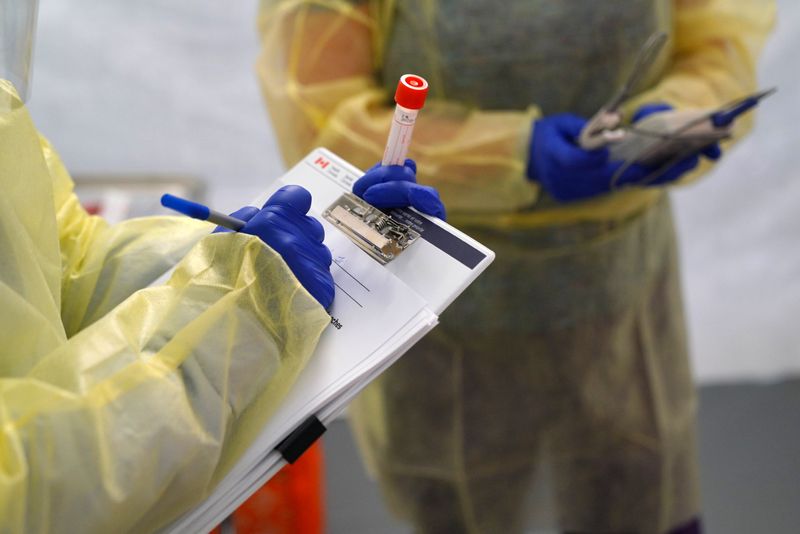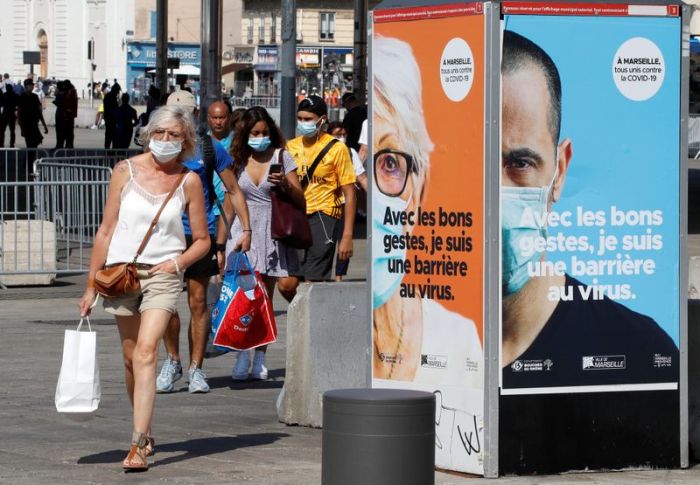TORONTO (Reuters) – The Canadian province of Ontario on Thursday moved to limit COVID-19 testing as labs struggled to keep up with demand, and some doctors called for immediate restrictions on non-essential businesses as the country entered a second wave of infections.
In a rare national address on Wednesday, Prime Minister Justin Trudeau said Canada is “at a crossroads” as a second wave of the disease emerges in four large provinces.
“While maintaining our province’s economy is always a priority, we are extremely concerned that, without action, the current rate of spread will require a return to widespread closure of non-essential businesses and schools to prevent a rise in hospitalizations,” read an open letter signed by 38 doctors and healthcare experts.
The letter said Ontario should place restrictions on dine-in restaurants and bars, nightclubs, gyms, theaters, and places of worship; ask non-essential businesses to have employees work from home; and instruct universities and colleges to offer classes online wherever possible.
Canada’s new cases have surged past 1,000 per day, after dropping below 300 in late June. That surge, paired with school policies that require tests for minor symptoms, have overwhelmed testing sites.
Ontario would refocus testing on people with symptoms, close contacts of confirmed cases and some other high-risk groups, discouraging tests for low-risk people without symptoms.
“Doing this will help support access to testing for those who need it, and help us to prevent and control the spread of COVID-19,” Barbara Yaffe, the province’s associate chief medical officer of health, said at a briefing.
The new guidance says asymptomatic people at the site of specific outbreaks may be considered for asymptomatic testing, along with high-risk populations like long-term care home workers, residents and visitors.
Canada has been slow to adopt newer testing technologies that are widely available in the United States, from home collection kits to rapid antigen tests.
(Reporting by Allison Martell; editing by Jonathan Oatis)




















